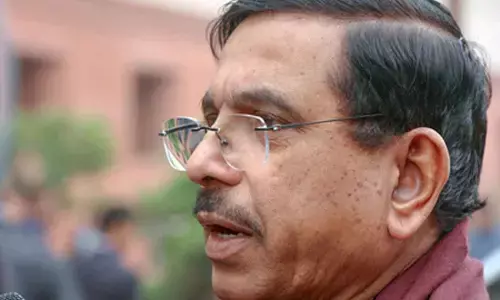P2P startups see steady growth amid stifling RBI rule

Peer-to-peer lenders seek hike in lending limit to `1 crore from `10 lakh now
Hyderabad: Peer-to-Peer (P2P) lending startups are seeing steady growth, on the back of tightened strings by banks in disbursing personal loans.
The platforms are witnessing a surge in demand and supply, giving better returns for lenders and comparatively lower interest rates for borrowers.
However, with an aim to become an asset class for lenders, P2P platforms lending unsecured personal loans, have been requesting the Reserve Bank of India, to drop the Rs 10 lakh lending limit, across all platforms, and increase the bracket to Rs 1 crore, for each lender.
"Lenders are coming on board to get better returns out of their savings. Investing on P2P platforms is considered safer as people are cautious of depositing money in banks and moreover, the returns from gold is limited as its price has already reached a peak.
Hence, AnyTimeLoan has been witnessing a growth of 2.5 times y-o-y, in volume of lenders and borrowers," founder of AnyTimeLoan, K K Jain told The Hans India.
Speaking about customers borrowing trend this year, he said that there is a switch in two types of borrowers. "After leveraging on the data collected from our platform, we have been able to assess, which borrower lived life on credit and what kind of person built their life on credit.
People who were looking for higher ticket size of loan are now applying for a smaller ticket size. This means, now, customers are playing within their financial ability."
Shankar Vaddadi, the founder of i-Lend, a city-based P2P lending startup, said that 35-50 lenders are added on to their platform month-on-month. At present, the startup has around 20,000 lender from its operations in Hyderabad and Bengaluru.
"On an average, Rs 1 lakh is the ticket size of loan disbursed every month. For each borrower, there are three to five lenders, which means nearly 10,000 are active lenders," he said. Vaddadi further added, "we are seeing an appetite in borrowers with entry level work experience. Earlier, people had over leveraged themselves.
Now, to pay off high cost debt and piled up credit card dues, they are seeking loans on our platform. With NBFC's the interest rate is around 24 per cent, while here it is 18-21 per cent on a daily diminishing balance."
The peer-to-peer lending sector is witnessing a steady growth only in terms of increase in the volume of lenders and borrowers.
The challenge here is to increase the value of transactions that take place on the platform, which will benefit these startups to garner a larger market share, and grow exponentially.
In October 2017, RBI passed a mandate which laid a tab on the amount that is lent on the platform, along with other norms. P2P platforms provide access to personal unsecured loan of up to Rs 10 lakh.
While a single borrower can take a loan of Rs 10 lakh, a lender cannot give more than Rs 10 lakh across platforms and not more than Rs 50,000 to an individual borrower.
"Due to RBI's prudential norms, our sector's suffering. Though lenders on the platform have gone up by 20 per cent, we aren't seeing any exponential turnover.
For P2P to become an asset class for lenders, this cap on lending amount needs to be increased from Rs 10 lakh to Rs 1 crore. We are awaiting a response from the RBI," the founder of PeerLend, Sanjay Darbha said.
He went on to add that an individual cannot lend more than Rs 50,000 to a single borrower, and if a borrower needs Rs 5 lakh he needs 10 lenders, this is creating operational hassle.
For P2P lending startups to be a success story in India, it's high time the central bank relaxes the regulations imposed.








